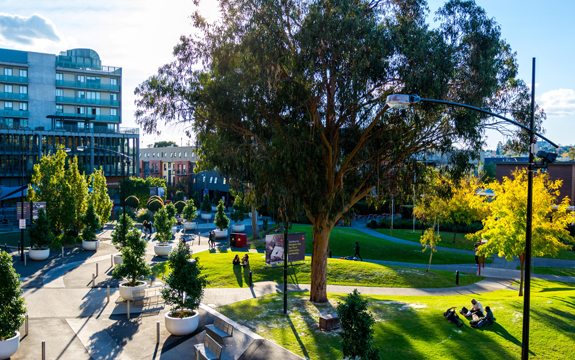Attention governments and the taxman: everyone deserves a second chance at education

In Summary
Jacqueline Ross, Swinburne University of Technology
This article originally appeared in The Age. Read the original article.
Deregulation of university fees will take the dream of a better life even further away from those who need it most. Twenty-three years ago, I was a single mother supplementing my pension by cleaning toilets. At 16, I left school and my broken family. Education was not part of my plan back then, survival was.
In my teens, I earned an income waitressing and working in shops. I became a beautician in my 20s but never felt satisfied. Then, when my beautiful daughter arrived and my marriage ended, cleaning paid the rent. Understanding clients let me bring my baby to bypass creche fees.
But I had always loved reading and began to imagine that life could be different. Education became a siren's song. Somehow I found the courage to sit the aptitude test for mature-age university students at Deakin University. I passed, and can still feel the fear and exhilaration of my first day as a bachelor of arts student. Back then I had little belief in myself, but the education cost me nothing and the creche on campus was free. What did I have to lose?
Twenty-five years on, I'm still a single mother – but everything else has changed. I've had eight years of university education and am a published author with a PhD in writing. I now lecture bachelor of arts students in those very same classes that once so terrified me.
The first subject I studied was Australian literature. When I got more confident, I enrolled in writing subjects and learned how to write myself. But my modest writing output and knowledge of Australian novels is not why my free education was worthwhile – the teaching is. I teach Swinburne University writing students at all levels, from TAFE through to masters. Many of these students will not write the next great Australian novel – but every single one will leave my class with a better understanding of the English language and how to communicate through writing.
For some, that might just mean writing a resume that gets them a job, for others it may lead to a career as an editor or business writer. Some students actually will write decent novels, along with non-fiction books, screenplays for film and TV, or articles for newspapers and magazines. I like to think that all my students will develop a love of reading that will sustain them through life, especially when it is difficult, the way that it has for me.
As well as that, I pay decent taxes. My own children are enjoying a much less impoverished childhood than I did but, more importantly, they know that education changes lives.
What would life be like if I was that young, struggling mum once again; a woman on a pension with no education or confidence. Fee deregulation will mean even more crippling HECS debts. They are confronting enough already. To be able to even contemplate a PhD requires an undergraduate degree with an honours year (on average $26,000) then a masters degree ($26,000). I suspect that owing $50,000 would seem like an impossible burden in an already difficult life. Add to that the spectre of fees that could rise at any time if deregulation is passed – and the prospect is daunting. So would I sit that university aptitude test now? Somehow I doubt it.
Dr Jacqueline Ross is a lecturer and tutor in writing at Swinburne University of Technology.

